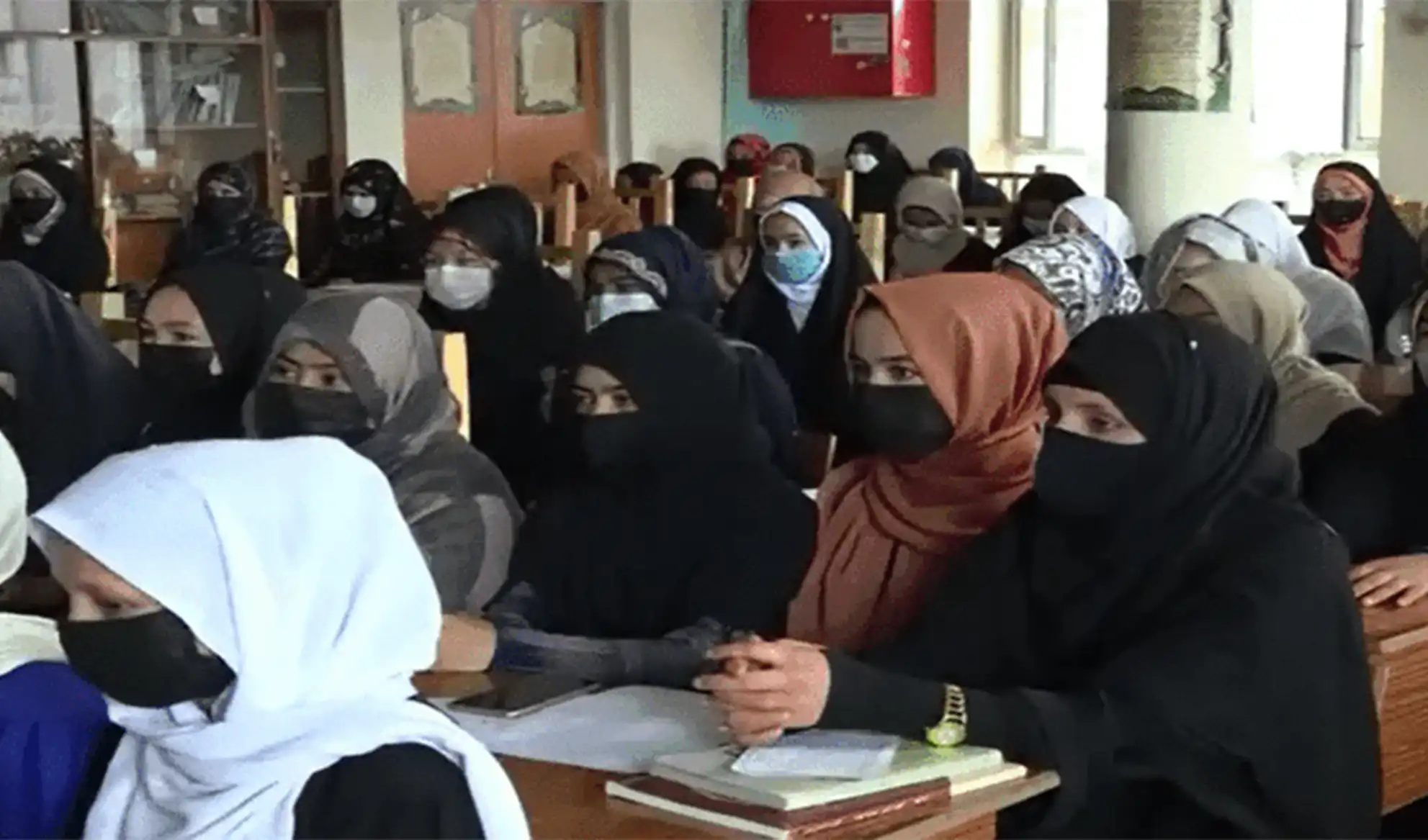GHAZNI CITY (Pajhwok): The number of madrassas — religious schools — has increased recently by two fold comparing to the past in southern Ghazni province as more girls students switched to madrassas.
Some female madrassa students said that schools and universities had been shut while religious schools are closed and they could utilise this opportunity to go to madrassas and study.
Zahra Nizami, founder and a teacher of the Zulfiqar Madrasa said, this madrasa was established recently in Ghazni city and had 500 students enrolled.
Zahra said: “The number of madrasas has increased recently several times compared to the past and the reason for this increase was the closure of the doors of schools and universities on female students.”
The students in madrasas are only taught religious subjects while the number of the new enrolling students is still on the rise, she said.
Husna, 16 and a student of Sarwar Kainat Madrasa told Pajhwok Afghan News: “I was in class 10th at school, our school got closed for studies and now I want to learn the Holy Quran and some other religious subjects in madrasa”.
“I wanted to become a journalist but it did not happened, as there are no restrictions on religious studies, so I decided to learn religious studies” Husna said.
Adila, 17 is another student of a religious madrasa of the same province, she told Pajhwok: “I got enrolled in madrasa two months ago, I want to finish religious studies, however I wanted to be a doctor but I think that is not possible for me anymore, so I switched to religious madrassa.”
On the other hand, the activists of the rights of women said that religious studies are necessary, but the opportunities for other scientific education should also be provided.
Women rights activist Arezo Nikzad while referring to the ban on education of female student at schools and at the universities said, access to education was an acceptable human right globally, education was a vital factor for the growth of economy for countries like Afghanistan.
We do not oppose religious studies, because there have been religious madrasas since centuries in Afghanistan, but she asked for attention should be paid to modern scientific educations such as medicine, law, journalism and others.
She, at mean time called on girls to continue studying the religious studies, because such madrasas are allocated for religious studies while such subjects also help the girls to reach their goals.
In the meantime some of the madrassas students urged the government to open the doors of the schools for all the students including girls.
Education Department Director Sebghatullah Ahmadi acknowledged surge in the number female students of madrassas and added the provincial administration was fully cooperative in this regard.
The number of madrassas where girls study reached to 400 in Ghazni where about 40,000 female students are studying, Ahmadi said.
He added, only two of these madrasas were registered and the remaining operated informally.
According to the figures of the officials of previous government, about 200 female madrassas operated in Ghazni province.
It is worth mentioning, that the figures including included small, medium and big madrasas that operated in houses, mosques or any other places.
In Ghazni 762 schools, including 71 girls schools, are registered with the Ministry of Educations.
As many as 132,000 girls studied in 71 schools but after the ban of girls’ education above class sixth, currently 10,000 girls attend their classes below grade sixth.
Aw/nh








GET IN TOUCH
NEWSLETTER
SUGGEST A STORY
PAJHWOK MOBILE APP